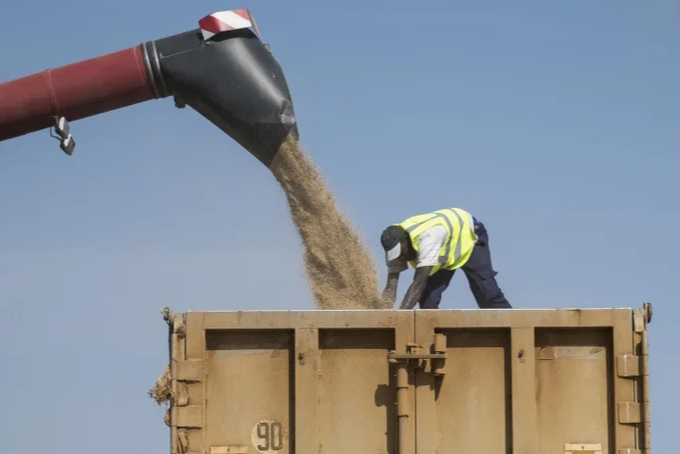May 21, 2025 | 05:31 GMT +7
May 21, 2025 | 05:31 GMT +7
Hotline: 0913.378.918
May 21, 2025 | 05:31 GMT +7
Hotline: 0913.378.918

According to the Global Nutrition Report, the prevalence of stunting is 31%, higher than the global average of 22%.
The program, announced by the US State Department together with the United Nations’s Food and Agriculture Organization and the African Union on Wednesday, will seek to identify crops in Africa’s five sub-regions that have historically not attracted research and investment. It will also assess how they will be affected by extreme climates.
“This push will seek to highlight these crops and aim to adapt both to climate change, to farmers needs and to the demands of the marketplace,” Cary Fowler, special envoy for global food security at the State Department, said. “We expect this will provide options for nutrition and better food security.”
Reducing Africa’s reliance on food imports would make it more resilient to external shocks and curb hunger. The UN estimates that more than 280 million people in Africa are experiencing hunger — a problem exacerbated by climate change, the Covid-19 pandemic and the impact of Russia’s war in Ukraine.
Unlike most crop adaptation efforts that focused on maize, rice and wheat, the Vision for Adopted Crops and Soils initiative will target traditional and indigenous African fruits and vegetables that have received much less attention, Fowler said.
Back on the Table
Many of them are rich in vitamins and micronutrients and important to lactating women and children in their first 1,000 days, in a continent where stunting levels are very high, he said. According to the Global Nutrition Report, the prevalence of stunting is 31%, higher than the global average of 22%.
Stunting can cause lower IQ, impaired brain development and weakened immune systems.
The initiative, which has the support of the Rockefeller Foundation and the African Orphan Crops Consortium, will also map soils for crop choice and the effective use of fertilizer, Fowler said.
The African Orphan Crops Consortium has been sequencing the genome of the so-called orphan crops since 2011, to accelerate breeding and mobilize talent by training, Allen Van Deynze, the scientific director at the consortium, said in an email.
These “nutritious crops already in African diets,” including yams, spider plants, agusi and tree crops like the Baobab, were traditionally the backbone of African food systems, he said.
(Bloomberg)

(VAN) Attempts to bring down the price of the Japanese staple have had little effect amid a cost-of-living crisis.

(VAN) Fourth most important food crop in peril as Latin America and Caribbean suffer from slow-onset climate disaster.

(VAN) Shifting market dynamics and the noise around new legislation has propelled Trouw Nutrition’s research around early life nutrition in poultry. Today, it continues to be a key area of research.

(VAN) India is concerned about its food security and the livelihoods of its farmers if more US food imports are allowed.

(VAN) FAO's Director-General emphasises the need to work together to transform agrifood systems.

(VAN) Europe is facing its worst outbreak of foot-and-mouth since the start of the century.

(VAN) The central authorities, in early April, released a 10-year plan for rural vitalization.